Best Practices to Fully Optimize PHP for Web Development
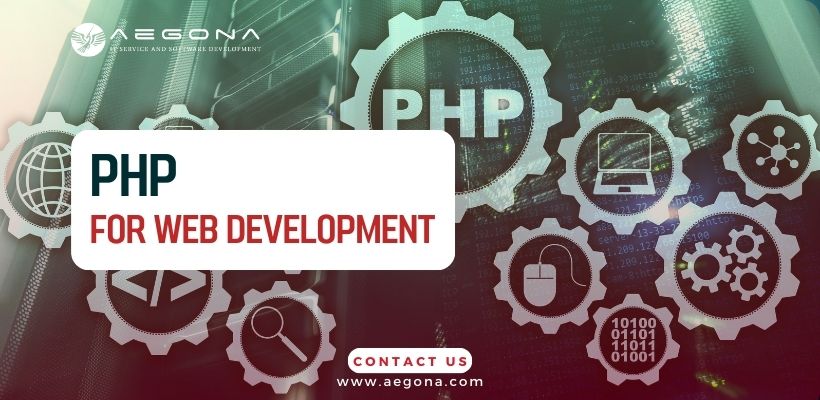
Discover essential best practices to fully optimize PHP for robust and efficient web development to improve performance, and ensure security in PHP web development.
1. Primer on PHP
PHP "Hypertext Preprocessor," is a popular and widely-used server-side scripting language designed for web development. It's an open-source language, which means it's free to use and has a large community of developers contributing to its ongoing development and improvement. PHP is known for its ability to generate dynamic content and interact with databases, making it a fundamental tool for building dynamic and interactive web applications.
Here's a primer on PHP, covering its basics and key concepts:
Syntax and Structure: PHP code is embedded within HTML, starting with <?php and ending with ?> tags.
Variables: Variables in PHP start with a dollar sign ($) followed by the variable name. Variable names are case-sensitive and must start with a letter or underscore, followed by letters, numbers, or underscores.
Data Types: PHP supports various data types, including integers, floats, strings, booleans, arrays, and objects.
Control Structures: PHP supports common control structures like if, else, else if, switch, for, while, and do-while loops.
Functions: Functions are blocks of reusable code. They can accept parameters and return values.
Arrays: PHP supports both indexed and associative arrays.
Database Interaction: PHP can interact with databases like MySQL, PostgreSQL, and others using various database extensions or frameworks.
Error Handling: PHP has built-in error-handling mechanisms like try-catch blocks for handling errors and exceptions.
Sessions and Cookies: PHP can handle sessions and cookies to manage user data and state across requests.
File Handling: PHP provides functions for reading, writing, and manipulating files on the server.
Object-Oriented Programming (OOP): PHP supports object-oriented programming with classes, objects, properties, and methods.
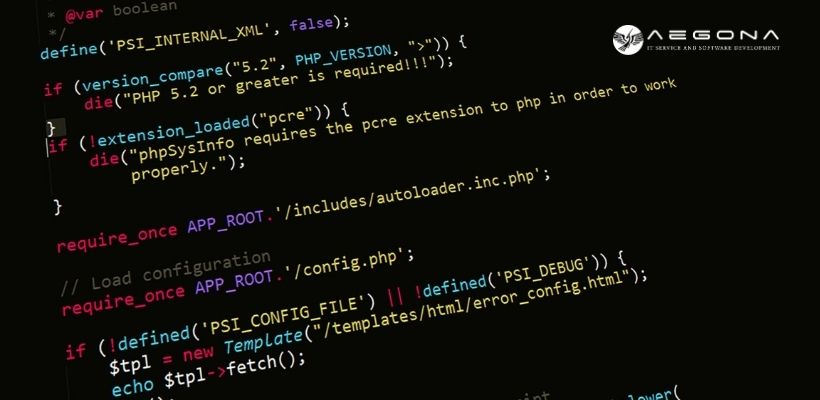
2. The reason why using PHP for Web Development
PHP is widely used in web development for several compelling reasons:
Open-Source Nature: PHP being open-source allows developers to use, modify, and distribute the language without any licensing fees. This accessibility significantly reduces development costs and encourages a large community of developers to contribute, collaborate, and improve the language.
Strong Community Support: The open-source nature of PHP has fostered a vast and active community of developers. This community contributes to the ongoing development, enhancement, and maintenance of PHP. The community provides support, tutorials, documentation, and resources, making it easier for developers to learn and grow in their PHP endeavors.
Database Integration: PHP has strong integration capabilities with various databases, notably MySQL, one of the most popular relational database management systems. This seamless integration enables efficient handling of data, making PHP a powerful tool for applications that require extensive database interactions.
Efficiency and Speed: PHP is known for its speed and efficiency in executing web requests. It's a server-side language optimized for web development, providing quick responses to HTTP requests. The efficiency of PHP contributes to faster development cycles and a better user experience for web applications.
Cross-Platform Compatibility: PHP is designed to be compatible with multiple operating systems like Windows, Linux, macOS, and others. This cross-platform compatibility ensures that PHP-based applications can run smoothly on a wide range of servers and environments.
Versatile Use Cases: PHP is versatile and can be used for various purposes beyond just creating websites. It can power blogs, forums, e-commerce platforms, content management systems, social networking sites, and more. The extensive range of applications that PHP can support makes it a preferred choice for many developers and organizations.
Rich Set of Features and Tools: PHP provides a rich set of features, tools, and libraries that expedite development and enhance functionality. These features enable developers to create dynamic, interactive, and feature-rich web applications.

3. Best Practices Optimizing PHP for Web Development
To enhance the functionality and reliability of your web application, it's crucial to adopt a strategic approach when leveraging PHP. Below are key best practices that can help you build robust and dynamic web applications:
Consistent Code Pattern: Enforce a uniform coding pattern to promote collaboration among project stakeholders. A consistent code structure enhances readability and comprehension, making it easier for team members to work on and maintain the codebase.
Effective Testing Strategies: Implement thorough automation testing to verify the reliability and stability of your software. Rigorous testing helps identify and rectify any issues prior to deploying the product, ensuring a more robust and reliable application.
Code Reusability: Avoid code duplication by designing modular and reusable code components. Code reusability improves maintainability, reduces redundancy, and enhances the overall performance of the project.
Prioritize Safety and Security: Emphasize security from the outset of development. Always use the latest version of PHP, employ HTTPS for secure data encryption, and regularly conduct security testing to proactively identify and mitigate potential threats in your application.
4. Aegona - Using PHP for Web Development
Aegona is an experienced Software Development Company based in Vietnam. We also provide PHP Web Development Services and PHP-dedicated developers for hire at an affordable price. Furthermore, all the best services are also guaranteed to be a value-add in mutual development cooperation.

Aegona offers PHP Development Services, including:
Custom PHP CMS Development
Custom PHP Application Development
Website Development Services
PHP Laravel Developer
Hire Dedicated PHP Developers
WordPress Development
Drupal Development
If you are also in need of web development based on open source code, PHP, you can contact us via email at contact@aegona or hotline +84 28 7109 2939 for advice and support.

related post

Amid the vibrant working atmosphere at Aegona, this September and October will be more exciting than ever with the kickoff of the 2025 Internal Chess Tournament

As scheduled, the monthly internal event “Happy Hour” returned to Aegona’s office this September afternoon, bringing along a joyful atmosphere filled with connection, laughter, and positivity.

Discover the key software outsourcing trends in 2025, from AI, automation, hybrid outsourcing to workforce training. Understanding these trends helps businesses optimize costs and improve software quality.

On June 16, 2025, following a series of technical discussions and alignment on technology directions, Aegona and Biblia officially signed a strategic cooperation agreement to develop a comprehensive digital publishing platform that integrates both E-books and Audiobooks.

In the global software development market, outsourcing Node.js development in Vietnam has become one of the most strategic choices for startups, SMEs, and enterprises looking to optimize costs while maintaining top-notch quality.
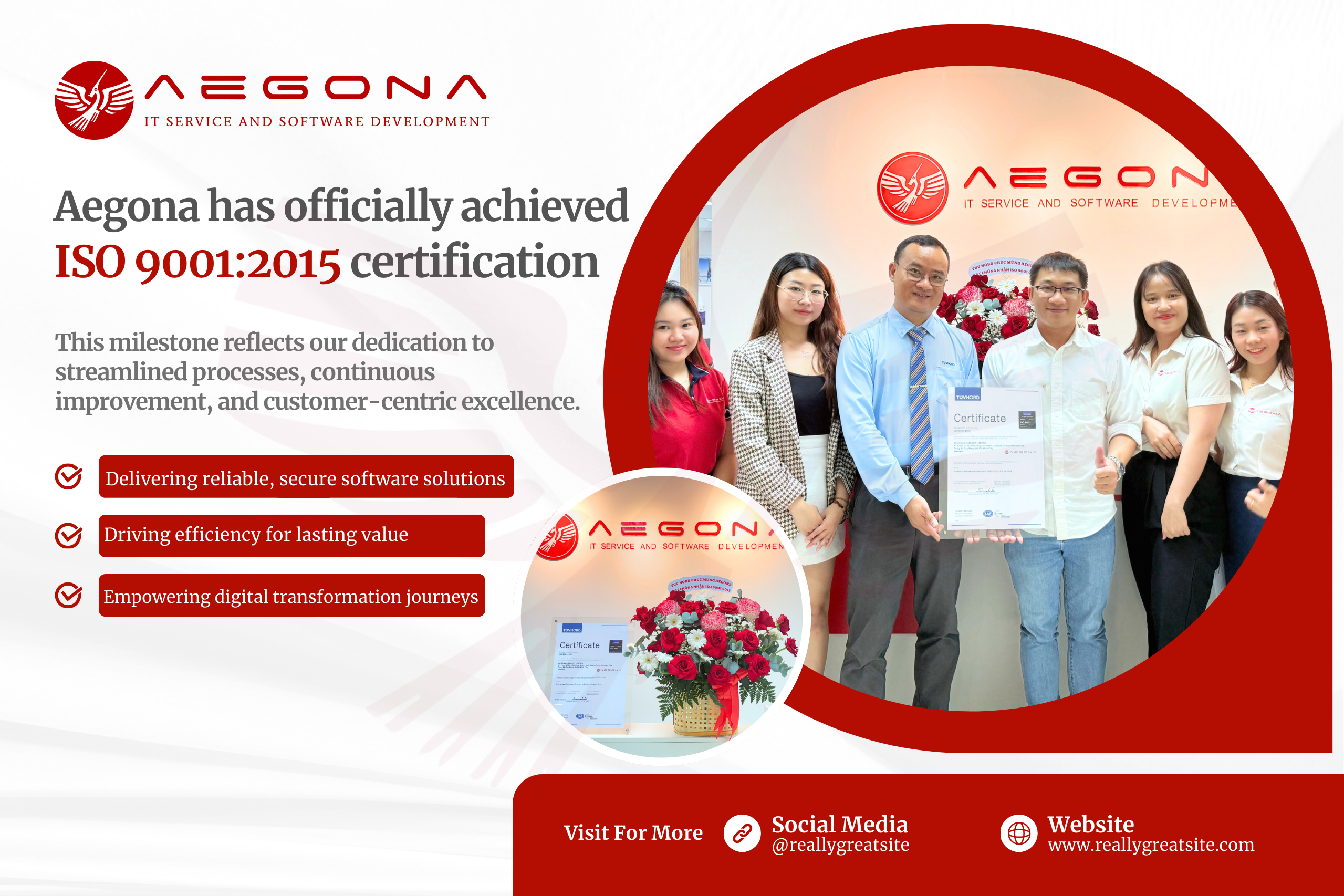
We are proud to announce that Aegona has officially achieved ISO 9001:2015 certification, an internationally recognized standard for quality management systems.

Outsourced IT staff offers a strategic alternative: you get skilled professionals exactly when you need them, without the overhead of permanent hires.
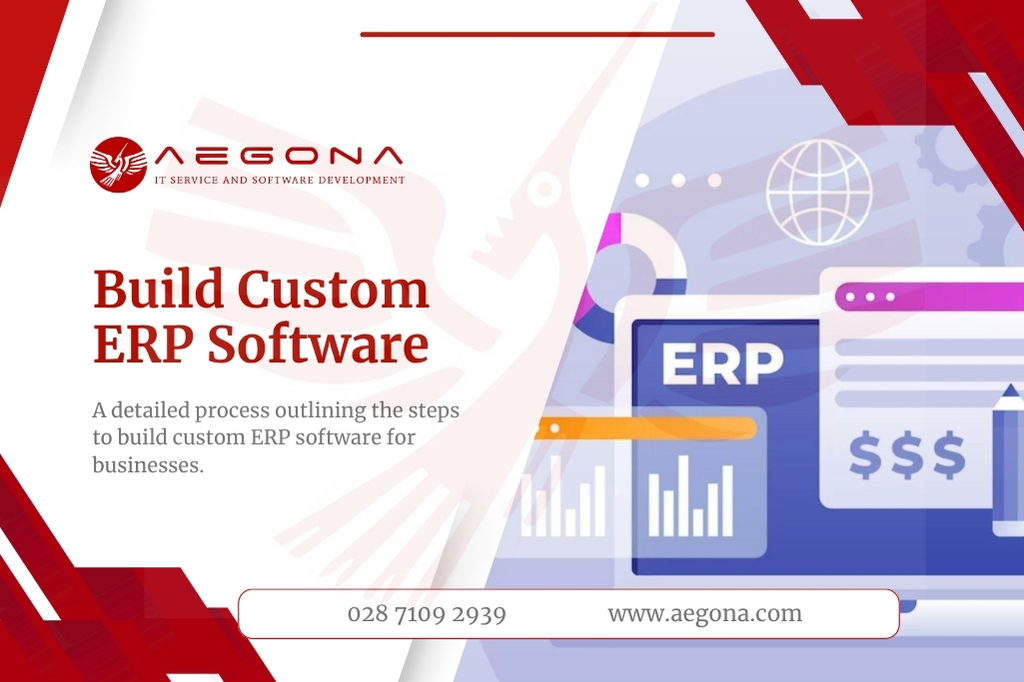
Build custom ERP software to streamline operations, boost efficiency, and fit your business needs. A complete step-by-step guide.
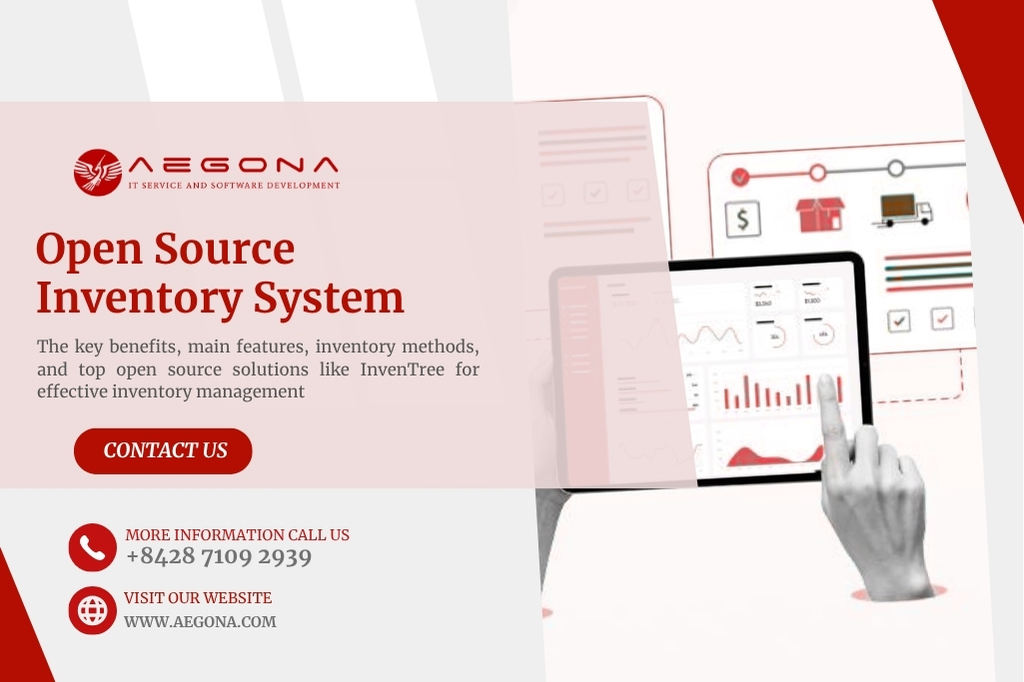
Discover the best open-source inventory systems like InvenTree. Learn key features, benefits, and tools to optimize warehouse and inventory operations.
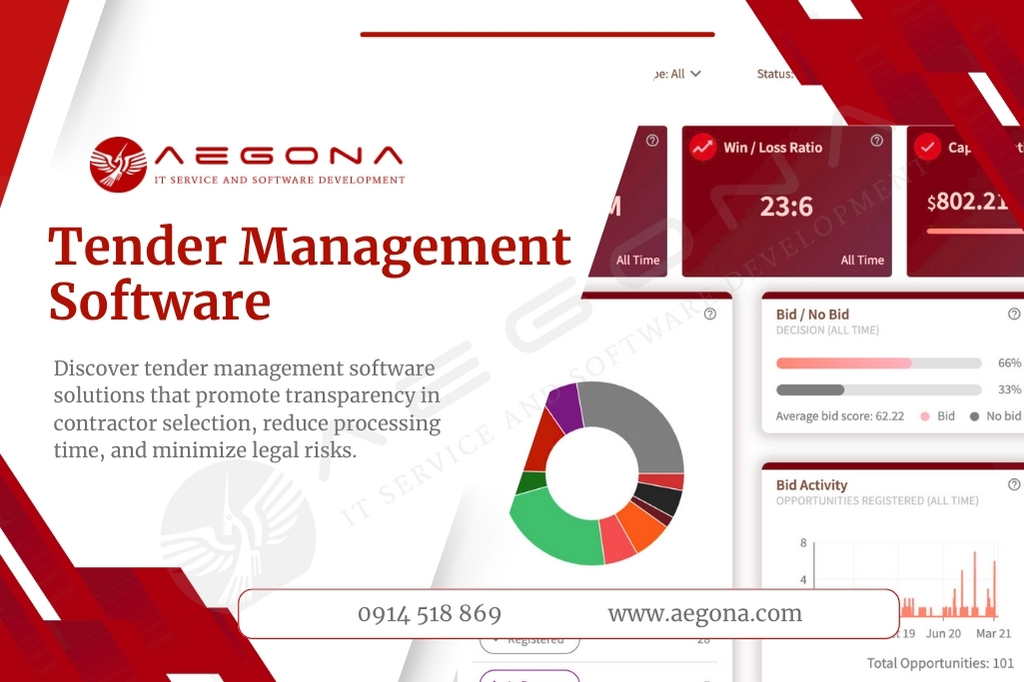
Discover how Tender Management software streamlines bidding, boosts efficiency, and when to choose a custom-built solution.
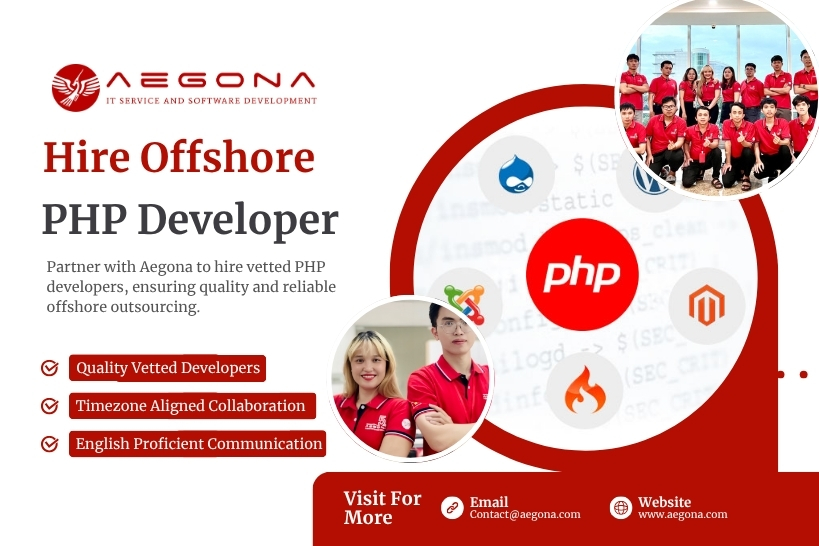
Discover the benefits of hiring offshore PHP developers in Vietnam and explore a step-by-step process to build a skilled, cost-effective development team.

Discover the key benefits and features of real estate app development in Vietnam for businesses aiming to grow in the digital property market.

Custom FinTech app development for banking, insurance, payments & more. Secure, scalable, and tailored to your business.

Odoo POS software is becoming an effective alternative to traditional POS systems thanks to its flexible integration capabilities and reasonable cost. Using sales management software plays an essential role in optimizing business operations. This article will help you compare Odoo software and traditional POS systems to find the most suitable option for your business.
